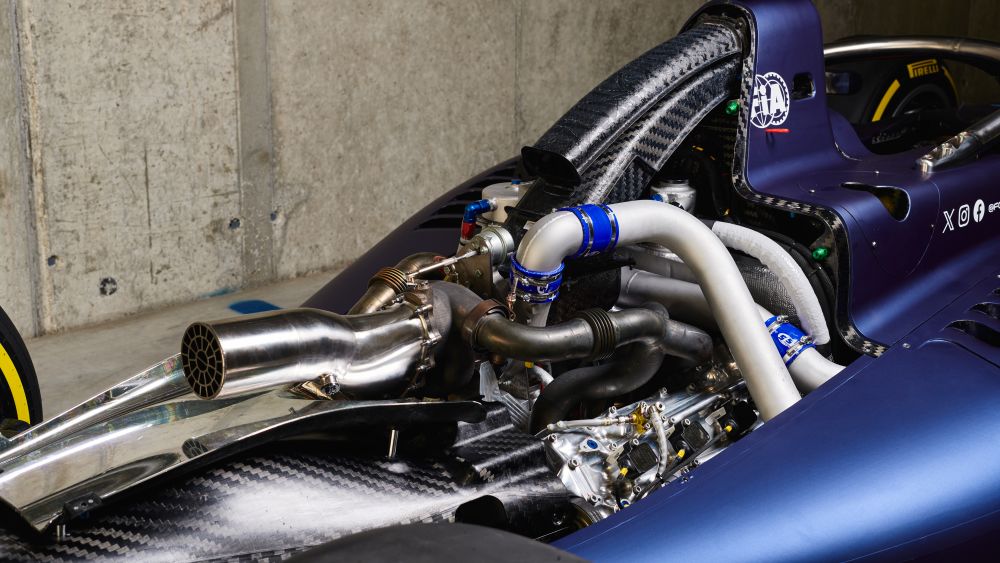Interview
On the cutting edge in motorsport tech: Mecachrome’s development of the new F2 engine

For 2024, Formula 2 will introduce a brand-new car for the 22 drivers and 11 teams to get to grips with, in what is an exciting step into the future for the Championship.
A significant part of that development and the next generation F2 car is below the surface, both in terms of the introduction of sustainable fuels from ’23 and the next phase of development. Engine partner Mecachrome has been developing the engines for the Championship to ensure the move to the next generation in 2024 is seamless.
Mecachrome CEO Christian Cornille says the company’s latest project with Formula 2 is a reiteration of the strong collaboration between the company and F2. He says that the introduction of the next generation of the F2 engine is an exciting prospect and just the latest milestone in an historic partnership.
“We are very proud to participate in this specific Championship, Formula 2, because we consider it to be one of the most interesting ones. Its format, the drivers involved and the fantastic cars that they have in their hands, it makes a for a very, very exciting Championship. This is the reason why we’re very proud to be a part of F2.”
Chiefly amongst the hurdles that Mecachrome has overcome year after year is the requirement of more than 22 engines per race weekend. Along with the racing years growing longer and longer, it means the French manufacturer has plenty of work on its hands even outside of the competitive season.
Of course, the difficulties stemming from the COVID-19 pandemic have made recent seasons equally challenging, though the Mecachrome CEO says that it has been a point of pride how the company has overcome such a tough period.

“First of all, we have to consider that we have a Championship where, between the end of one season to the start of the next season, the lead time is very, very short. Year after year it becomes shorter. We have some races in the far east and it’s challenging to have this short turnaround time to prepare the season. The second one is that, after the COVID crisis, we’ve had many issues in our supply chain. We’ve had to face that very difficult situation. It’s these new challenges that we’ve had to face but it’s an exciting one because it was very tough.”
2024 is the next phase in the push for sustainability in motorsport with Formula 2 and 3 running the newest fuels from Aramco, composed of 55% biosourced fuel. The engines have been redeveloped to ensure the reliability and power output is still the same regardless of the switch.
READ MORE: FIA Formula 2 next generation car breaks cover in Monza
It is also a crucial component with a view to the future, with 2025 marking the introduction of 55% synthetic fuels, before another change anticipated for 2027 when the Championship will switch to fully synthetic fuels.
“We started to introduce a new gasoline to the cars in 2023,” Mecachrome’s CEO explains. “It was an important step in the de-carbonisation of motorsport, and we are very proud of it. In 2024 with the new car, we’ve improved again the technology we use to be able to, day after day, de-carbonise our sport. For us, it’s part of the challenge of 2024 but our journey is just starting and next year is one of the first steps. We’ll increase our involvement in that journey, 2024 is a new car but for us, it’s just the next step in the de-carbonisation of our sport.

“The challenge is the injection system in the cylinders. We’ve had to completely change the injection system to make it happen. It’s a brand-new technology for us because our V6 is an engine designed to be very reliable, and it’s a significant change that’s modified a lot of things in the combustion of the gas in the cylinder. This change of injection was the most significant challenge of the new regulations, but we succeeded in making it happen thanks to our design capabilities.”
Of course, the data and knowledge built up across the 2023 campaign have gone a long way and Mecachrome has taken every learning into account for the ’24 engines. There’s a lot more development in the pipeline and work is continuous in the improvement of the engine, but 2024 stands to be a crucial step on the path to sustainability according to Cornille.
“That’s a very interesting part of the journey, the job with Aramco. Working together, Aramco, Mecachrome and Formula Motorsport Limited, we’ve discovered a lot of things and had many difficulties but the fact that we started this journey in 2023 and will be continuing in 2024 and 2025, it’s a very, very efficient way to develop this new technology. The new de-carbonisation journey, for me, is a very good way to work together and a good way to collaborate between all parties.”